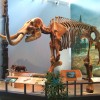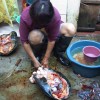Site Topics
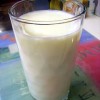
Evolution – Got Milk?
Feb 17th
After asking students during a lesson on mutations if it is possible that a mutation in DNA could be good, most students will nod yes without much understanding. Recently, I finally had one student raise his hand immediately and answer the question (with extreme surprise that no other students were blurting out the answer)…”evolution!” He was able to make the connection between changes in DNA that are building up over time, and how that change can possibly make that organism better in some way. If it helps the survival of an organism, that mutation is going to stick around and More >
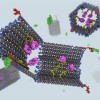
What do you get when you cross an immunologist, a nanotechnologist, and a geneticist? A DNA nano-robot!
Feb 17th
Welcome to the world of nanobiotechnology and translational research…
In a brilliant example of multidisciplinary research, Harvard Medical School’s Shawn Douglas, Ido Bachelet, and George Church combined forces to build nanostructures that would mimic the body’s immune system to recognize cancer cells and trick them into self-destructing. Their research is published today in Science but the discovery didn’t just happen overnight. It’s the culmination of several key discoveries going back several years, by researchers around the globe.
In 2006, Paul Rothemund at the California Institute of Technology, discovered “DNA origami,” where the Watson-Crick base-pairing rules are exploited to create molecules from viral DNA More >
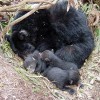
Hibernation – Why Not Me?
Feb 16th
It’s the season of hibernation, something I’ve always wished I could do. Oh, to wrap up in a ball, sleep away the winter, and wake to a beautiful spring day – like Bambi! Although the thought has always intrigued me, it never really occurred to me what a feat hibernation actually is. It turns out that all of the bears, squirrels, rabbits etc…. that I thought were just sleeping, are breaking biological laws!! If I was to stay dormant for 5 months, without food or drink and little to no movement in freezing temperatures I would die, so no hibernating More >
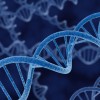
Controlling gene expression through diet
Feb 16th
Epigenetics is the study of chemical reactions that control the on and off switch of genes at specific times and the factors influencing them. Environment is a factor that influences epigenetic change which may encompass behavior, stress or diet. The easiest of the three to make observations from is diet. When we think of food, rarely do we think of chemical modifications to DNA and restriction of gene activity. Commonly we think of foods coming in and being broken down into nutrients to be utilized in metabolic pathways to make components the body can use. Interestingly one of the pathways More >
New Hope for Alzheimer’s Sufferers
Feb 13th
This article in science is good news for suffers of Alzheimer’s. A group out of Case Western University reports that the drug Bexarotene can reverse the symptoms of Alzheimer’s in mouse models of the disease.
More importantly, Bexarotene is already in use in human patients, making it easier to determine if the drug will have similar benefits for Alzheimer’s patients.
According to Alzheimer’s Foundation statistics, 5.4 million Americans suffer from this debilitating disease. Alzheimer’s devastates patient’s cognitive abilities, with the most notable symptom being profound and worsening memory loss. While some amount of memory loss is to be expected with old age, Alzheimer’s patients More >

Tumor Treatment: Whether to Shrink or Not to Shrink
Feb 6th
Just like normal tissue, tumors need blood vessels to grow. Because of this, drugs that stop angiogenesis, or the formation of new blood vessels, are one important approach to treating cancers. These angiogenesis inhibitors stop tumor growth by starving them of oxygen and nutrients, usually by interfering with signals from the tumor cells that promote blood vessel formation in the surrounding tissue. Angiogenesis inhibitors have been shown to be effective in the treatment of several cancer types, but the results aren’t always as expected. Several recent studies show how complicated this can be. For instance, FDA approval of the drug More >
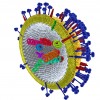
Catching the Flu: Between Complacency and Fear
Jan 25th
It is “flu season” again and people are being vaccinated against the seasonal flu. But how do these vaccines work and why do we have to get a new one every year?
And how does this relate to the issue of scientific publishing and biosecurity? Read on…
Flu – or influenza – is a serious respiratory illness (not to be confused with common cold) caused by the influenza A and B viruses. Influenza claims a death toll of about 250,000 to 500,000 people worldwide every year. Medical advances have helped understand and combat one of history’s worst killers. From 1918 to 2012 More >

